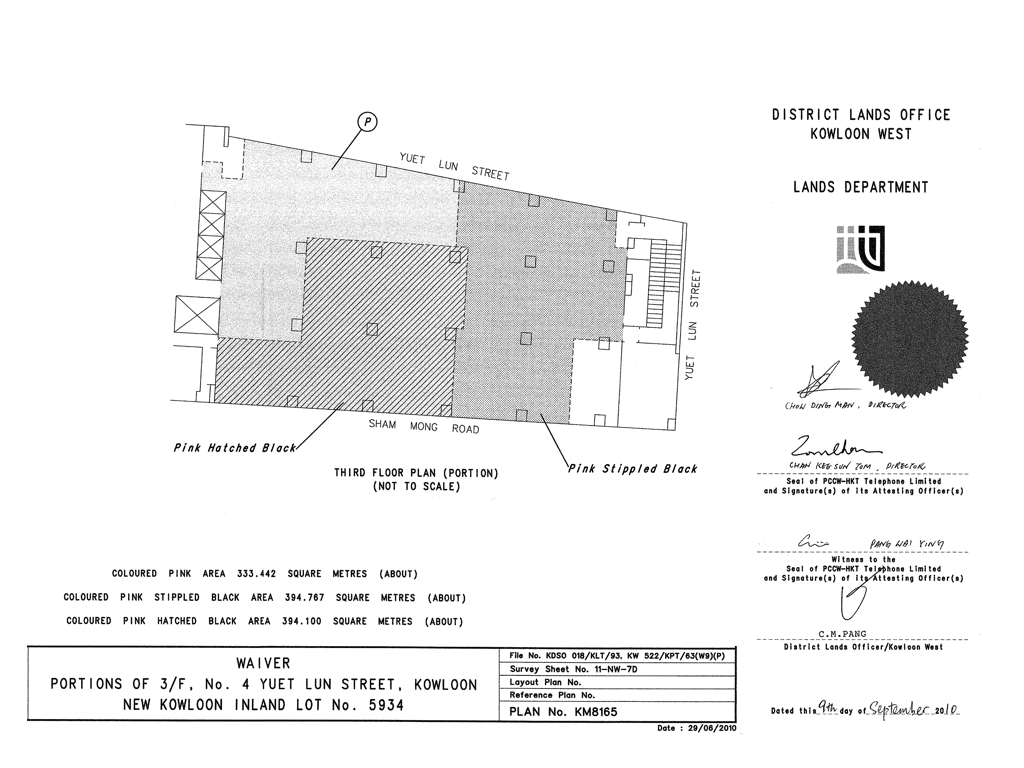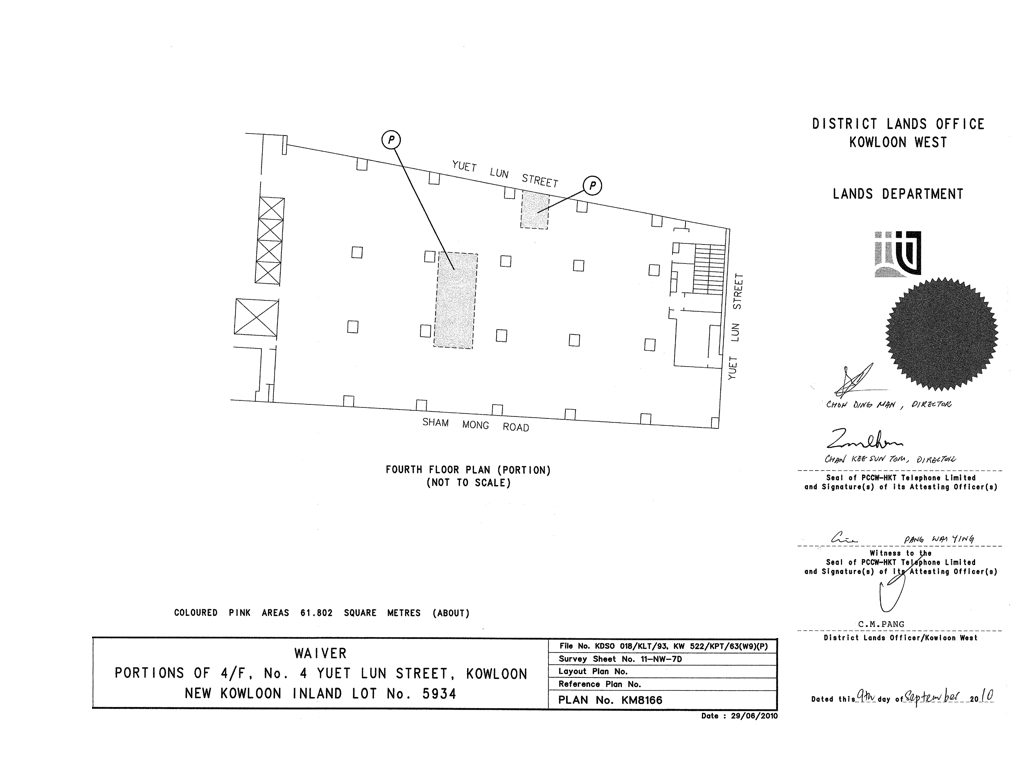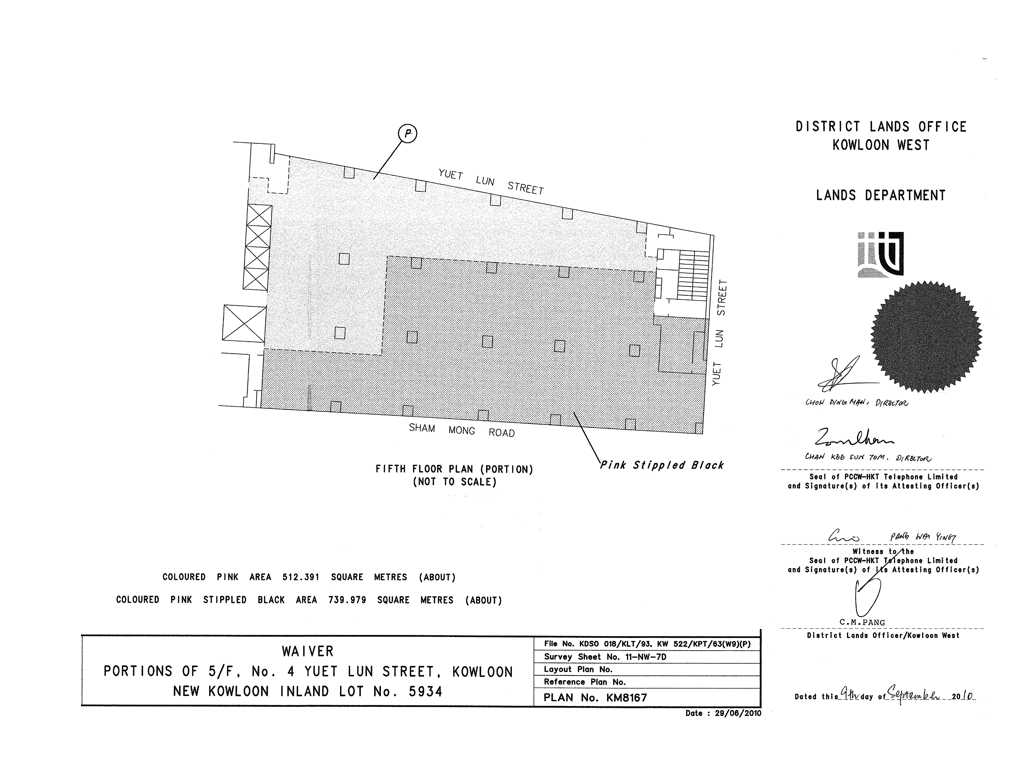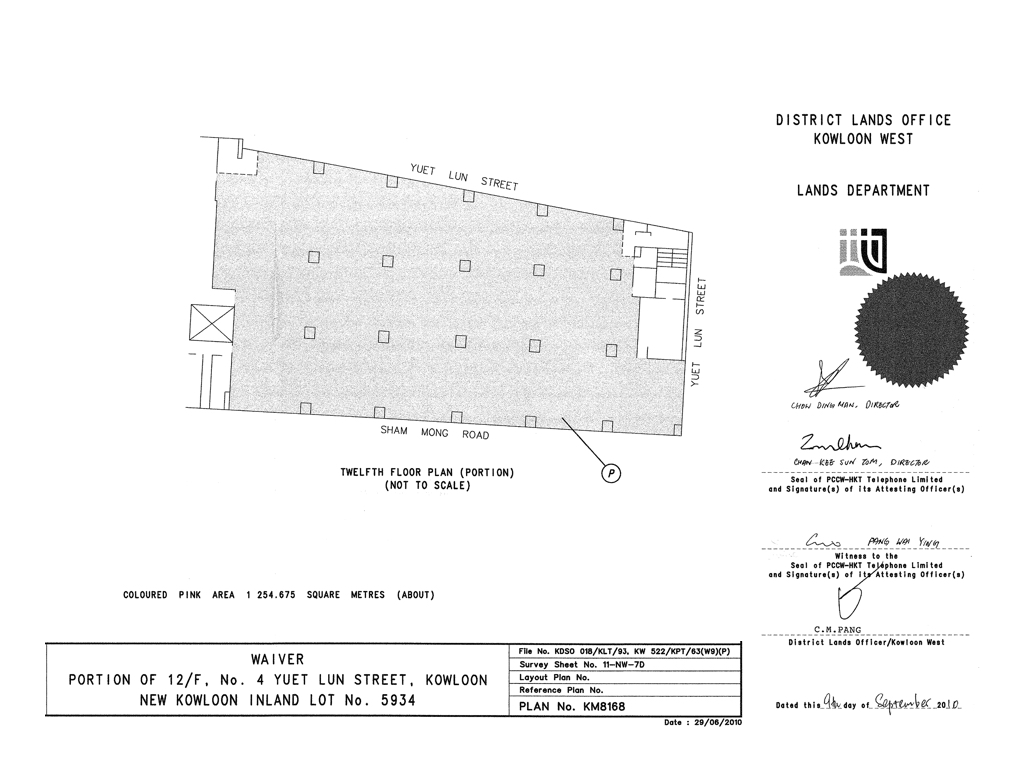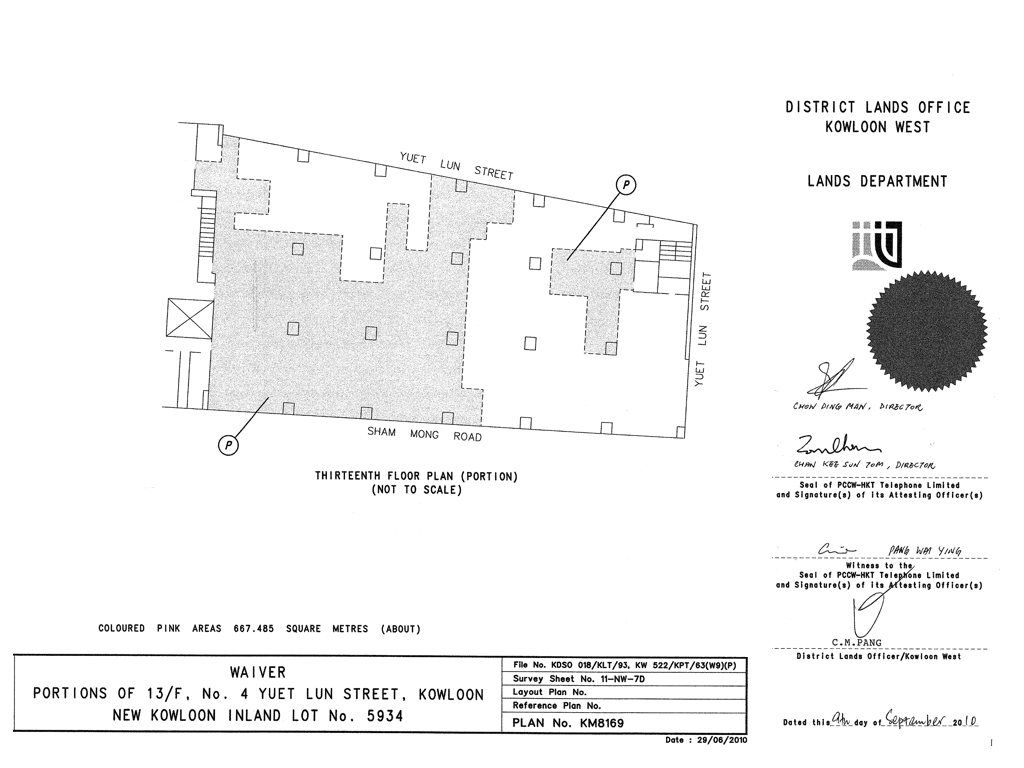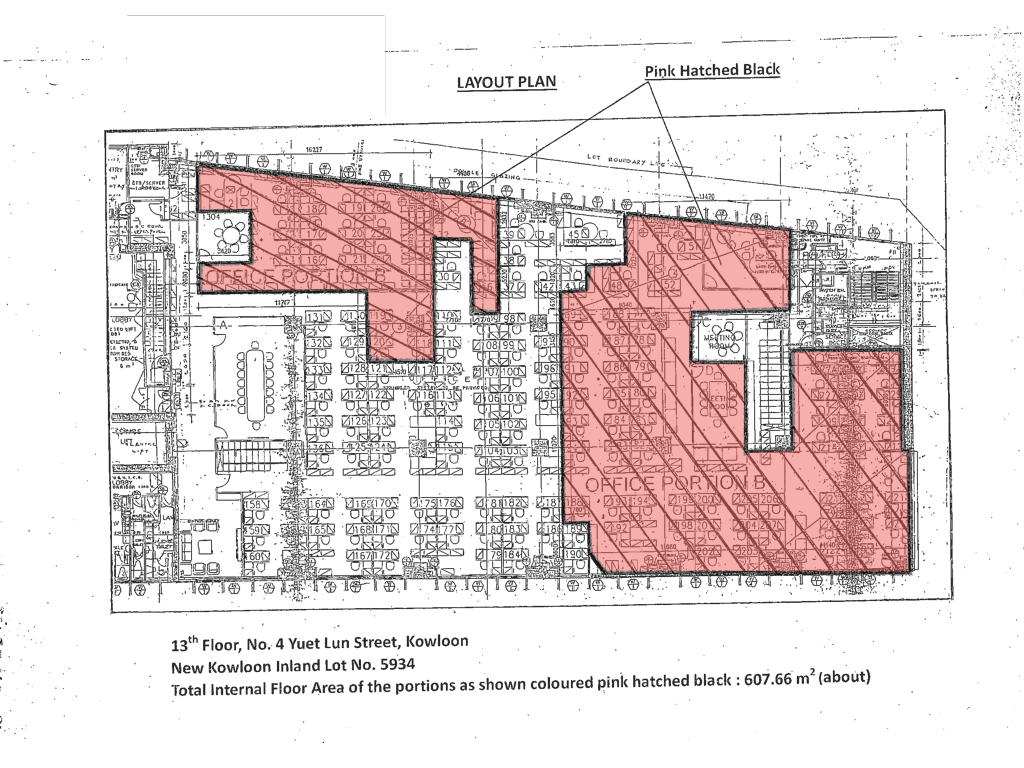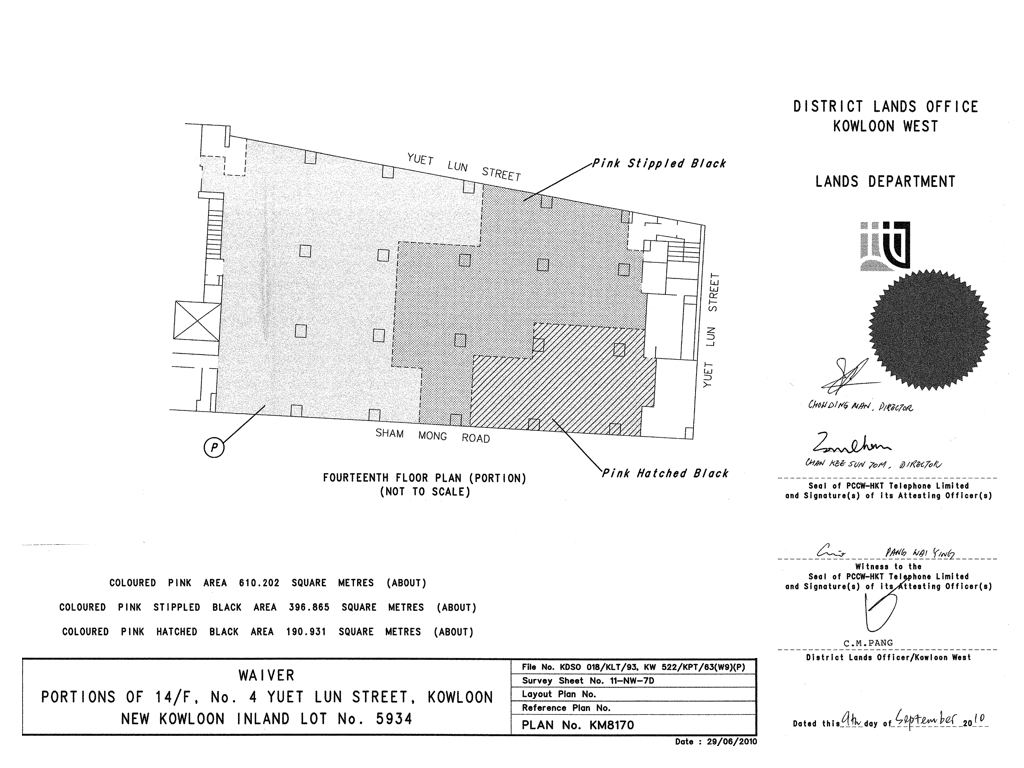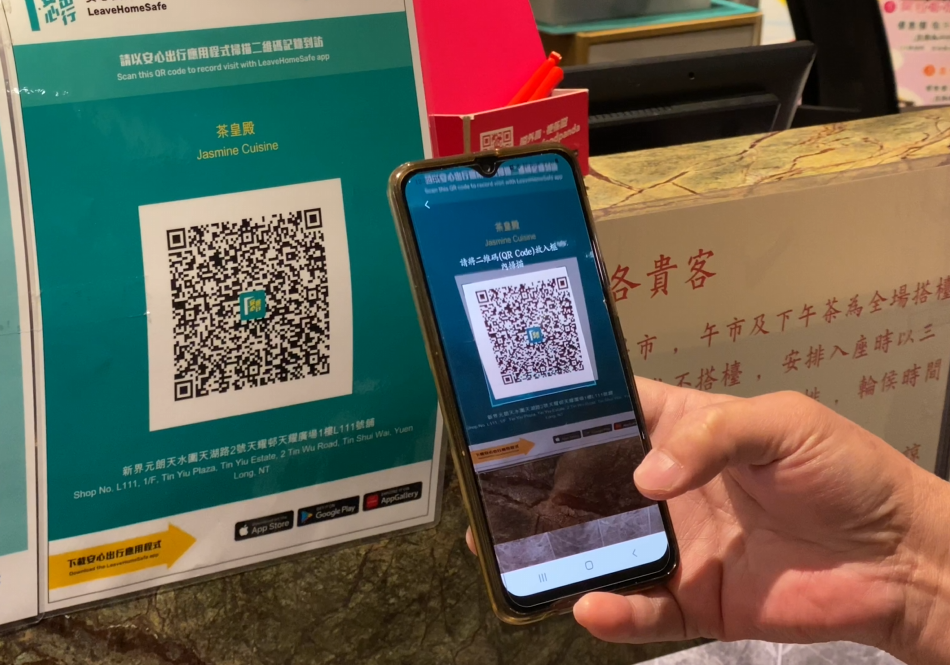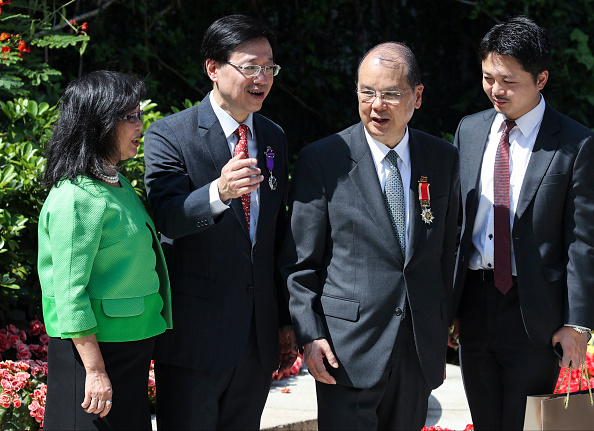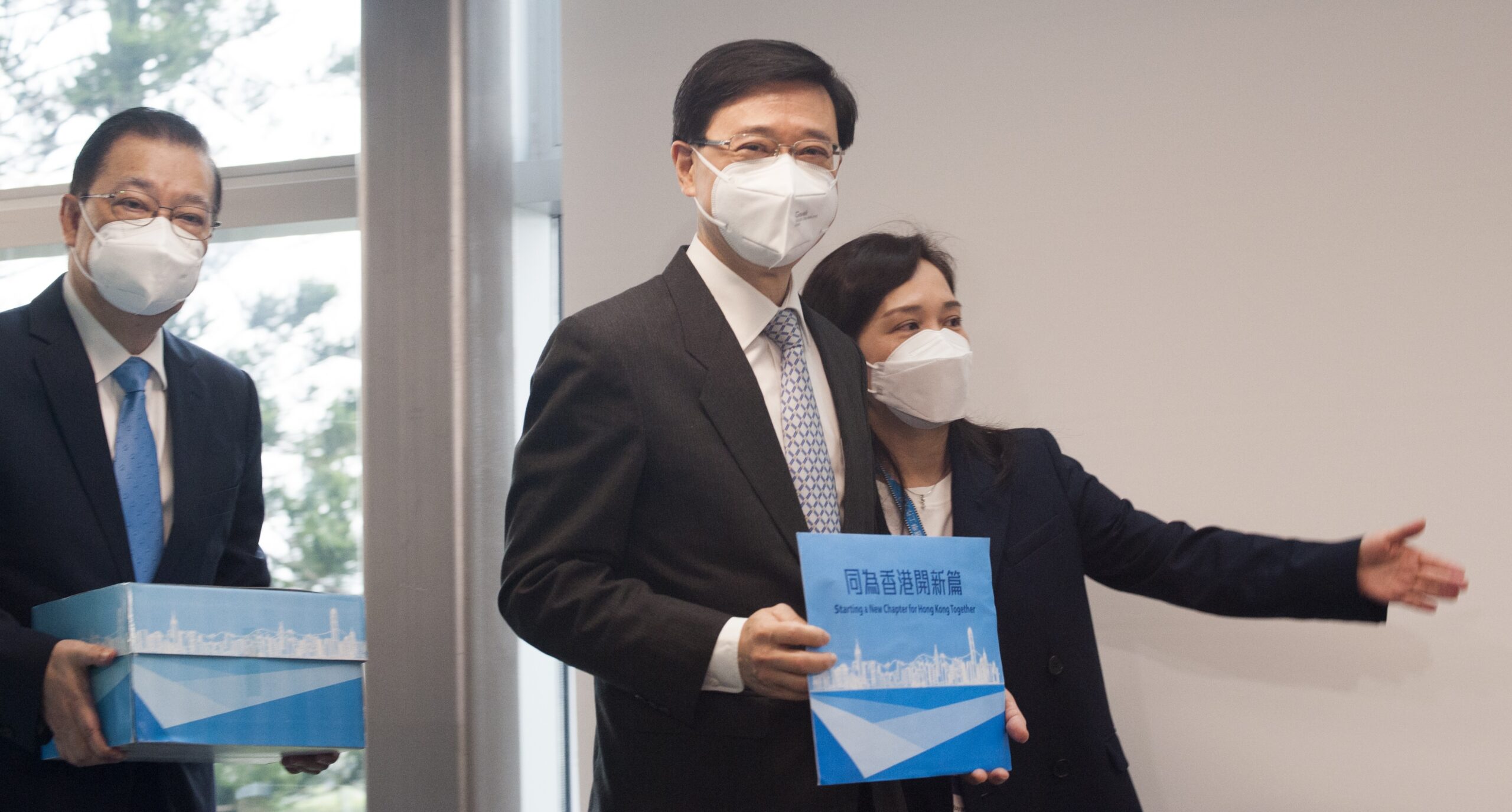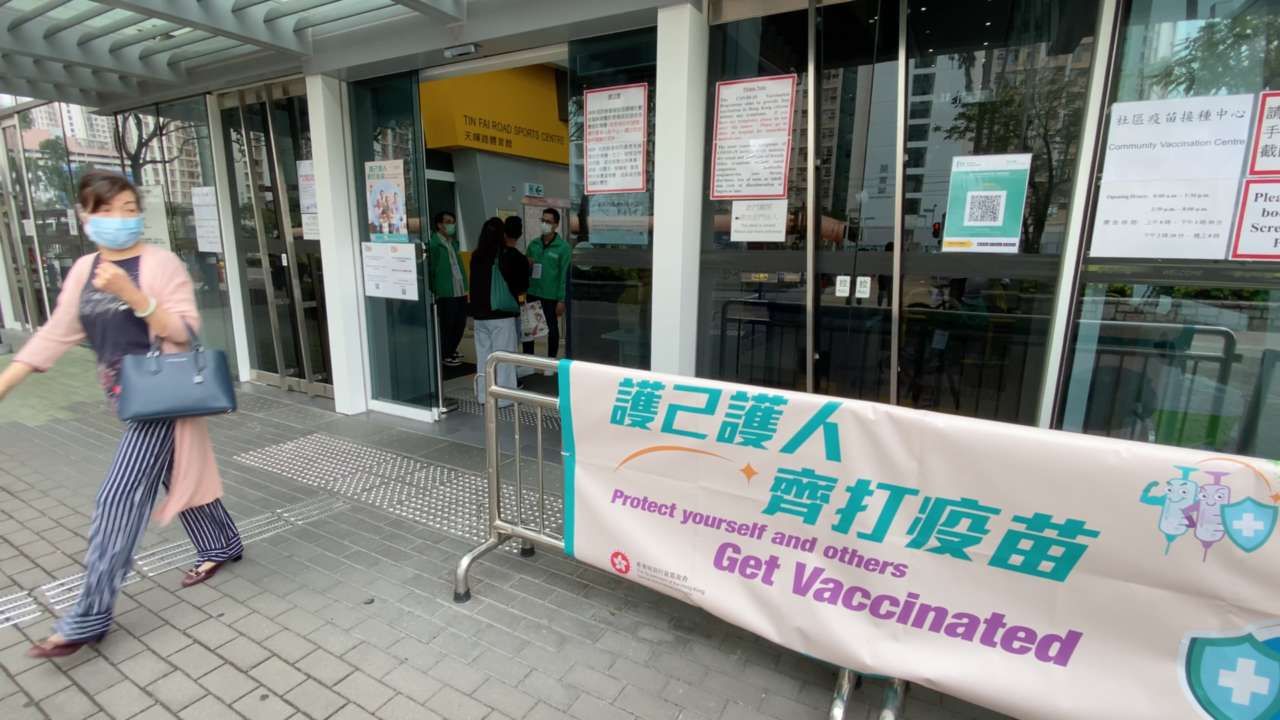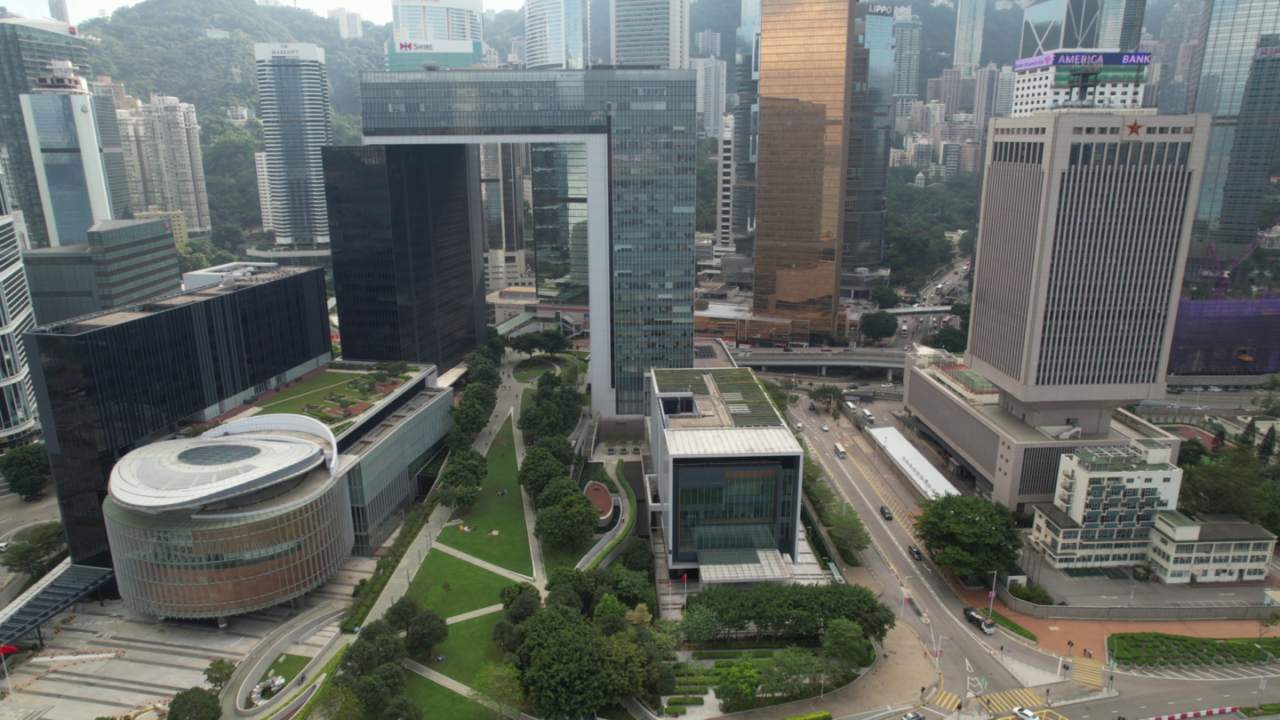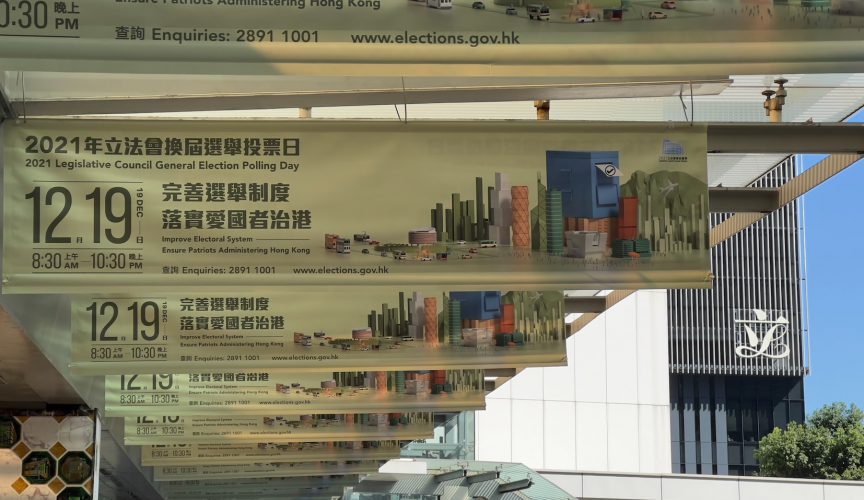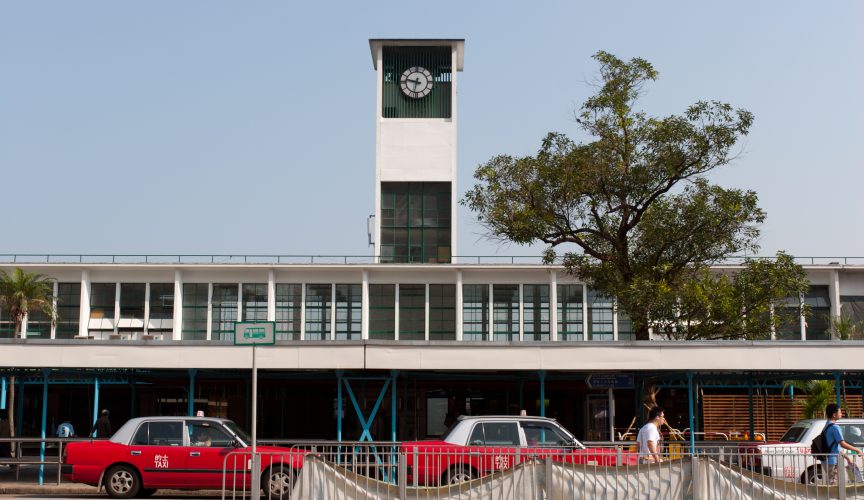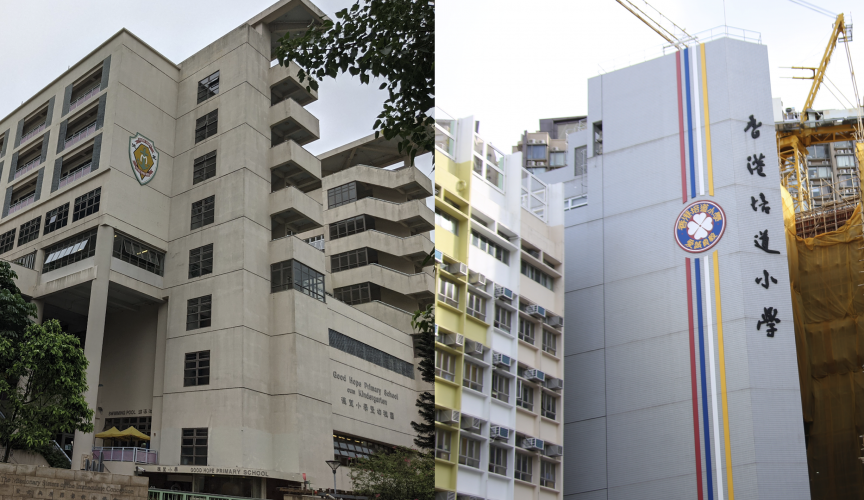The revelations come as part of an investigation into misuses of the dozens of telephone exchanges owned by PCCW Group
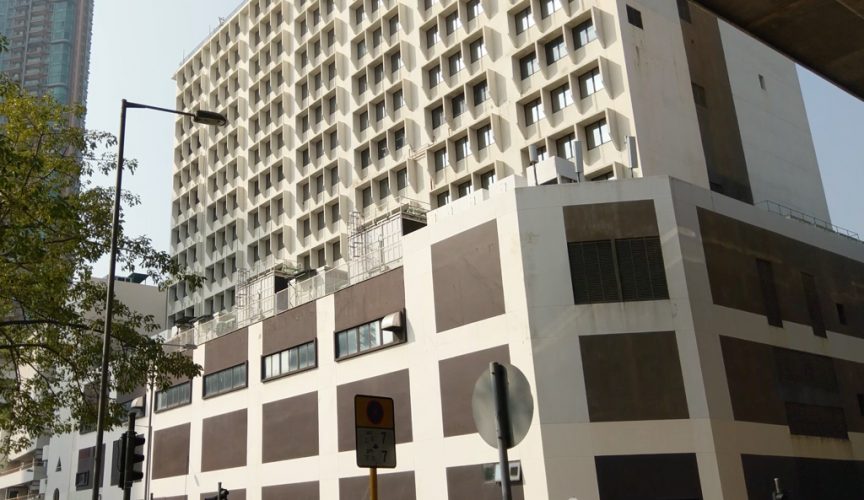
Hong Kong Telecom, one of the largest telecom operators in Hong Kong, has been using ‘temporary’ waivers – which are normally granted for a period of one year – to convert parts of its Lai Chi Kok Engineering Centre into offices in the last three decades, FactWire can reveal.
According to its land lease, the 14-storey premises can only be used as a telephone exchange and its ancillary facilities, but the property owner PCCW-HKT Telephone can apply for a temporary permission – also known as waiver – from the Lands Department to relax the restrictions.
These waivers are usually valid for a term of one year and have to be renewed quarterly thereafter, or occasionally, granted up to a maximum of three years with further extension subject to government approval.
However, FactWire has found that HKT has been using several temporary waivers to operate offices in 66,000 sq ft of the building, or around 20 per cent of the total floor area, with the earliest permission dating back to 1985.
The current waiver application procedure also requires the leaseholder to obtain approval from the Town Planning Board for any proposed uses that are not permitted in the outline zoning plan for the area. FactWire has discovered that HKT may not have the necessary planning approvals for some commercial offices in the engineering centre, which is located in a government, institution or community (GIC) zone.
The latest revelations come as part of a four-month investigation into misuses of the dozens of telephone exchanges owned by PCCW Group, the parent of HKT, as well as the questionable enforcement efforts by the Lands Department.
FactWire revealed last week that at least six HKT customer service centres located in telephone exchanges, including the one in Lai Chi Kok Exchange, had been operating in violation of land leases, while the company was also notified of government inspections days in advance.
According to the two waivers that are currently effective, PCCW-HKT Telephone, the owner of Lai Chi Kok Engineering Centre, obtained a temporary permission in September 2010 to use part of the third to fifth floors and 12th to 14th floors as a telecommunications research and development centre, network design and planning offices and offices for its mobile business for a quarterly fee of $666,800, which would be revised every three years.
The waiver document also stated that the permission would be immediately revoked if HKT failed to obtain the necessary planning approvals.
In December 2016, HKT received another temporary waiver, effective between June 2015 and June 2018, to use an area of 6,531 sq ft on the 13th floor for ‘general office purpose’ for an annual fee of $729,192.
Through an access to information request, FactWire has also obtained documents relating to the planning applications for the building from around 2006 to 2009, which reveal that HKT had been using waivers that were ‘approved on a temporary basis for a period of three years’ to use a number of floors in the building as offices since as early as 1985.
Documents prepared by the consultancy firm Townland furthur reveal that the Lands Department never requested the company to apply for planning approvals from the Planning Department or the Town Planning Board before granting the waivers until after 2004.
The applications to operate general offices and offices for HKT’s mobile business in a total floor area of 23,748 sq ft on portions of the third, fifth and 13th floor were later approved by the Town Planning Board on the opinions of the Office of the Telecommunications Authority and the Planning Department that the company did not require planning approvals for other proposed uses.
However, an HKT employee, who does not wish to be named, has told FactWire that the entire third to fifth floors are currently offices for HKT’s mobile network, while according to government records on the statutory planning portal, the company never made any additional applications for the changes after the initial applications in 2008 and 2009.
The office on the fourth floor used for mobile communications engineering even never has any planning approval from the authorities.
Investigation by FactWire has also revealed the lack of supervision on the use of temporary waivers by the Lands Department, which did not demand PCCW to renew the permissions until several months, and in some cases, more than a year after they had expired.
For example, according to official documents relating to an waiver application for the Lai Chi Kok premises in February 2008, the department only suggested PCCW to renew the waiver for an annual fee of $3.5m 18 months after the last one had expired in 2006. It also said at the time it would take enforcement action if the company did not obtain approval from the Town Planning Board before June 2008.
But according to minutes of a planning board meeting in November 2008 – when all temporary waivers for offices in the building had expired – a government representative only said the Lands Department would ‘consider taking lease enforcement action subject to their own priority’. Then in response to a media enquiry at the time, the department said it had agreed to an one-year extension of the waiver and that, from 1985 to 2009, HKT had converted parts of the building into offices by paying $116m in temporary waiver fees.
The Lands Department responded in an emailed statement on Wednesday evening, after this story was published, saying: ‘The third, fifth and 13th floors of Lai Chi Kok Engineering Centre has received planning permissions from the Town Planning Board to operate as offices, and do not require further permissions as long as the owner does not change the uses.’
‘The Lands Department will arrange follow-up inspections with respect to other floors of the building and, when necessary, seek opinions from the Planning Department to ensure their uses meet planned land use or granted permissions,’ a spokesperson added.
‘Telephone exchange is a permitted use in government, institution or community zone, therefore offices ancillary to that purpose would not require planning permission. However, other commercial use such as office, retail and services would require permission from the Town Planning Board,’ the Planning Department also said on Thursday.
In the last four months, FactWire had made three access to information requests for information on waiver applications from the last three years relating to telephone exchanges owned by PCCW and HKT. The Lands Department only provided information on seven telephone exchanges that was updated to July 2012 and declined to provide more updated records citing administrative reasons.
Update: This story has been updated to include responses from the Lands Department and the Planning Department. Changes have also been made to reflect the fact that planning permissions issued in 2008 and 2009 are still valid according to the two departments.

